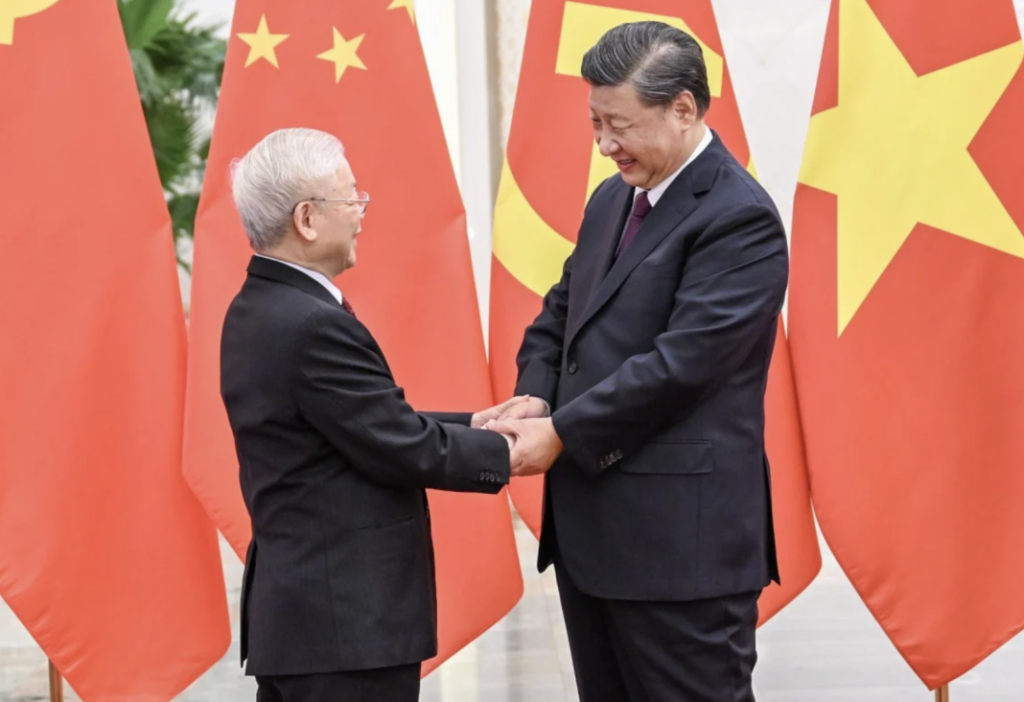During state visit, Xi Jinping and Nguyen Phu Trong aim to present a facade of deep-rooted friendship between their communist-run nations. This diplomatic display follows the surprising elevation of the US to “comprehensive strategic partner” during President Joe Biden’s visit to Hanoi in September, placing Washington on par with Beijing in Vietnam’s intricate hierarchy of international partnerships.
In diplomatic exchanges, Vietnam is set to announce participation in Xi’s “Community of Common Destiny,” symbolically challenging the prevailing US-led global order. This move would position China a step ahead in the ongoing competition for Vietnam’s allegiance.
China extends an olive branch, offering advanced railway technology to assist Vietnam in upgrading its transportation infrastructure. The proposed rail link from southern China to Haiphong port crosses a region rich in rare earth deposits essential for electric vehicles and renewable energy.
Historical tensions persist, including the South China Sea dispute and bitter memories of the 1979 border war. Public sentiment in Vietnam can be fiercely anti-Chinese, driven by nationalism and historical apprehensions of their giant northern neighbor. Online discussions in Vietnam address sensitive topics, such as the South China Sea’s disputed nine-dash line, emphasizing public wariness of China’s influence.
While both governments have worked to cool public sentiments over the years, issues like the 2014 anti-Chinese riots and banned movies inadvertently displaying contested Chinese claims illustrate the underlying tension. Vietnam’s leaders balance nationalism with economic reality, as China is its largest trading partner and foreign direct investor.
Despite ideological bonds and economic cooperation, Vietnam’s strategic outlook is markedly different from China’s. Vietnam’s “bamboo diplomacy” aims for flexibility, avoiding military alliances, and siding with one country against another. Economic ties with China are crucial, but Vietnam’s upgraded relations with the US reflect a pursuit of balance in geopolitics. Vietnam’s strategic alignment with China and US hinges on future events, with potential regional flare-ups, especially in South China Sea.











More Stories
Trump Announces Drug Pricing Deals to Cut Cost of Weight-Loss Medications
Poor Engineering Led to Titan Submersible Implosion, Say US Authorities
Nvidia Boss Predicts UK Will Become an “AI Superpower” as Tech Giants Pledge Billions